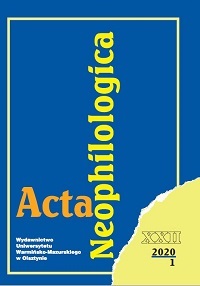Obrzędowe pieczywo weselne podlaskiej tradycji wschodniej – korowaj, rahulki, dwojany, korowajczyki, huski
Ritual Wedding Baking in the Eastern Tradition in Podlasie– korowaj, rahulki, dwojany, korowajczyki, huski
Author(s): Irena MatusSubject(s): History, Social Sciences, Language and Literature Studies, Geography, Regional studies, Sociology
Published by: Wydawnictwo Uniwersytetu Warmińsko-Mazurskiego w Olsztynie
Keywords: wedding; korowaj; korowajnici; huski; korowajczyki
Summary/Abstract: This article presents types of ritual bread used as part of wedding customs, paying special attention to korowaj. In former villages, a wedding could not exist with-out the traditional korowaj and ritual baking pastries such as korowajczyki, dwojany, huski. Korowaj was treated as sanctity and it was sacralised. It was baked only once in a lifetime for the bride and for the groom. The paper discusses in detail the baking process, the accompanying rules and prohibitions and special songs which were sung. The ceremonial baking was prepared by a team of women – korowajnić. Dough served to predict the future life of the bride and the groom.Decorations made of dough were significant, characterized by timeless symbolism, for example, the most popular twisted spiral-like huski,double-branched sticks dwojany and triple-branched sticks trojany – both covered with dough. In time, new floristic and zoomorphic decorations appeared. Korowaj was round, which had a symbolic meaning as a wedding ring, and offered to newlyweds and the wedding guests. In former villages korowajczyki were also baked for the bride and used in magical procedures. Huski were given as gifts. The symbolic dwojany were prepared to protect marriage from disintegration. With the fall of tra-ditional culture, the old customs and wedding ceremonies disappeared and the baking of ritual pastries was ceased.
Journal: Acta Neophilologica
- Issue Year: 1/2020
- Issue No: XXII
- Page Range: 187-204
- Page Count: 18
- Language: Polish

